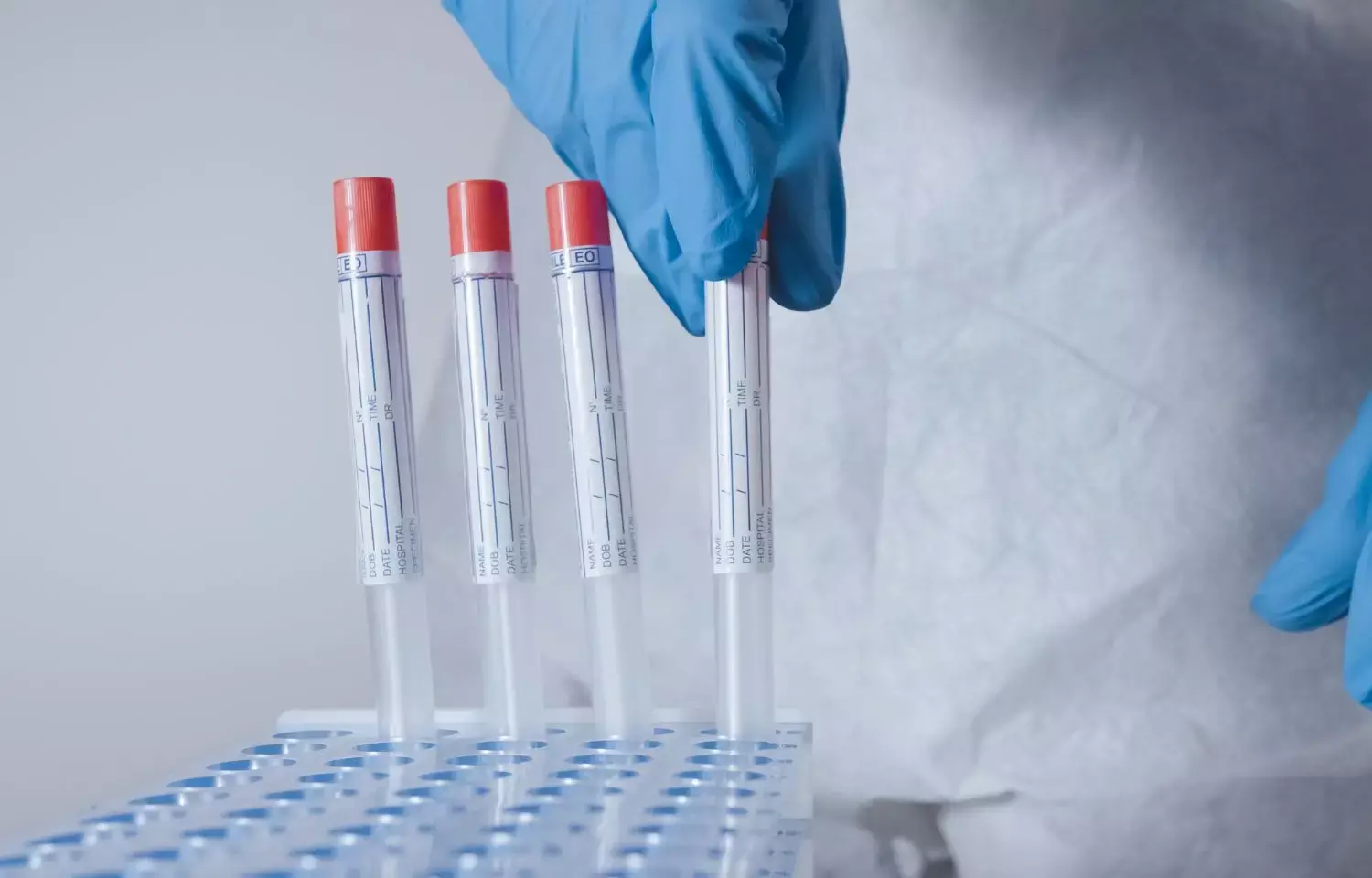- Home
- Medical news & Guidelines
- Anesthesiology
- Cardiology and CTVS
- Critical Care
- Dentistry
- Dermatology
- Diabetes and Endocrinology
- ENT
- Gastroenterology
- Medicine
- Nephrology
- Neurology
- Obstretics-Gynaecology
- Oncology
- Ophthalmology
- Orthopaedics
- Pediatrics-Neonatology
- Psychiatry
- Pulmonology
- Radiology
- Surgery
- Urology
- Laboratory Medicine
- Diet
- Nursing
- Paramedical
- Physiotherapy
- Health news
- Fact Check
- Bone Health Fact Check
- Brain Health Fact Check
- Cancer Related Fact Check
- Child Care Fact Check
- Dental and oral health fact check
- Diabetes and metabolic health fact check
- Diet and Nutrition Fact Check
- Eye and ENT Care Fact Check
- Fitness fact check
- Gut health fact check
- Heart health fact check
- Kidney health fact check
- Medical education fact check
- Men's health fact check
- Respiratory fact check
- Skin and hair care fact check
- Vaccine and Immunization fact check
- Women's health fact check
- AYUSH
- State News
- Andaman and Nicobar Islands
- Andhra Pradesh
- Arunachal Pradesh
- Assam
- Bihar
- Chandigarh
- Chattisgarh
- Dadra and Nagar Haveli
- Daman and Diu
- Delhi
- Goa
- Gujarat
- Haryana
- Himachal Pradesh
- Jammu & Kashmir
- Jharkhand
- Karnataka
- Kerala
- Ladakh
- Lakshadweep
- Madhya Pradesh
- Maharashtra
- Manipur
- Meghalaya
- Mizoram
- Nagaland
- Odisha
- Puducherry
- Punjab
- Rajasthan
- Sikkim
- Tamil Nadu
- Telangana
- Tripura
- Uttar Pradesh
- Uttrakhand
- West Bengal
- Medical Education
- Industry
Progesterone may halt development of diabetic neuropathy among diabetes patients

Diabetic neuropathy is an important complication of diabetes which damages nerves and in spite of number of studies on human and experimental diabetic neuropathy, the current therapeutic arsenal is meagre.
Progesterone can possibly lessen inflammation and nerve injury and act as a protective factor against diabetic neuropathy (DN), reveals a new research published in Fundamental & Clinical Pharmacology Journal.
The peripheral nerve system being damaged is one of the worst complications of diabetes. Despite numerous investigations on both human and experimental diabetic neuropathy, the available treatment options are limited. Therefore, a top goal in biomedical research is the quest for compounds that can shield the neurological system from the degenerative consequences of diabetes.
Diabetes creates a problem in mitochondrial function that harms nuclear and mitochondrial DNA, destroys the sciatic nerve and dorsal root ganglion, and results in neuropathy. It also causes an increase in the production of inflammatory cytokines. Progesterone has been demonstrated to have anti-inflammatory and anti-oxidative properties and to guard against nerve cell deterioration.
For this investigation, forty male Sprague-Dawley rats were placed into four groups: control, diabetic, diabetic plus progesterone (30 mg/kg), and diabetic plus progesterone (30 mg/kg) with RU486 (10 mg/kg). Blood glucose levels, behavioral tests, body weight, electrophysiological testing, oxidative and inflammatory variables, and histological characteristics were all examined after the production of diabetes.
The key findings of this study were:
1. Without having a substantial impact on glucose levels, progesterone therapy drastically decreased hot plate sensitivity.
2. Significant alterations were also seen in the tail flake test findings.
3. The outcomes also showed that progesterone therapy can enhance MNCV and considerably lower blood levels of oxidative stress and inflammatory markers, as well as swelling and inflammation near the sciatic nerve.
4. But RU486 reversed progesterone's constructive effects.
In conclusion, progesterone receptors are crucial for the neuroprotective properties of progesterone since progesterone receptor blocker RU486 prevents progesterone from having positive effects on the DN.
Reference:
Mokhtari, S., Sistani Karampour, N., Shams, M. H., Dehpour, A. R., & Hasanvand, A. (2022). Protective assessment of progesterone and its receptor on experimental diabetic neuropathy: Anti-oxidant and anti-inflammatory effects. Fundamental & Clinical Pharmacology. https://doi.org/10.1111/fcp.12839
Dr Kartikeya Kohli is an Internal Medicine Consultant at Sitaram Bhartia Hospital in Delhi with super speciality training in Nephrology. He has worked with various eminent hospitals like Indraprastha Apollo Hospital, Sir Gangaram Hospital. He holds an MBBS from Kasturba Medical College Manipal, DNB Internal Medicine, Post Graduate Diploma in Clinical Research and Business Development, Fellow DNB Nephrology, MRCP and ECFMG Certification. He has been closely associated with India Medical Association South Delhi Branch and Delhi Medical Association and has been organising continuing medical education programs on their behalf from time to time. Further he has been contributing medical articles for their newsletters as well. He is also associated with electronic media and TV for conduction and presentation of health programs. He has been associated with Medical Dialogues for last 3 years and contributing articles on regular basis.
Dr Kamal Kant Kohli-MBBS, DTCD- a chest specialist with more than 30 years of practice and a flair for writing clinical articles, Dr Kamal Kant Kohli joined Medical Dialogues as a Chief Editor of Medical News. Besides writing articles, as an editor, he proofreads and verifies all the medical content published on Medical Dialogues including those coming from journals, studies,medical conferences,guidelines etc. Email: drkohli@medicaldialogues.in. Contact no. 011-43720751


